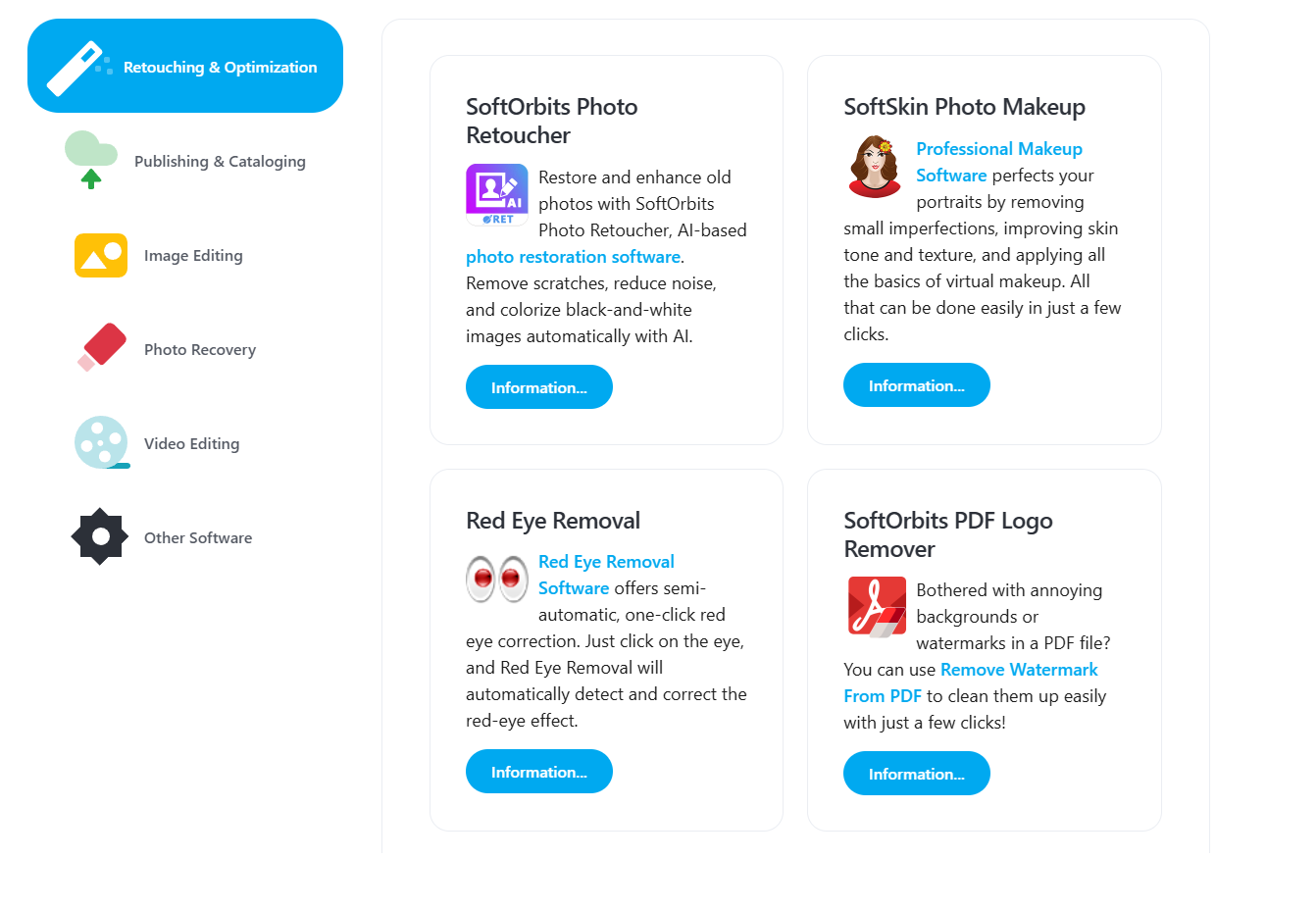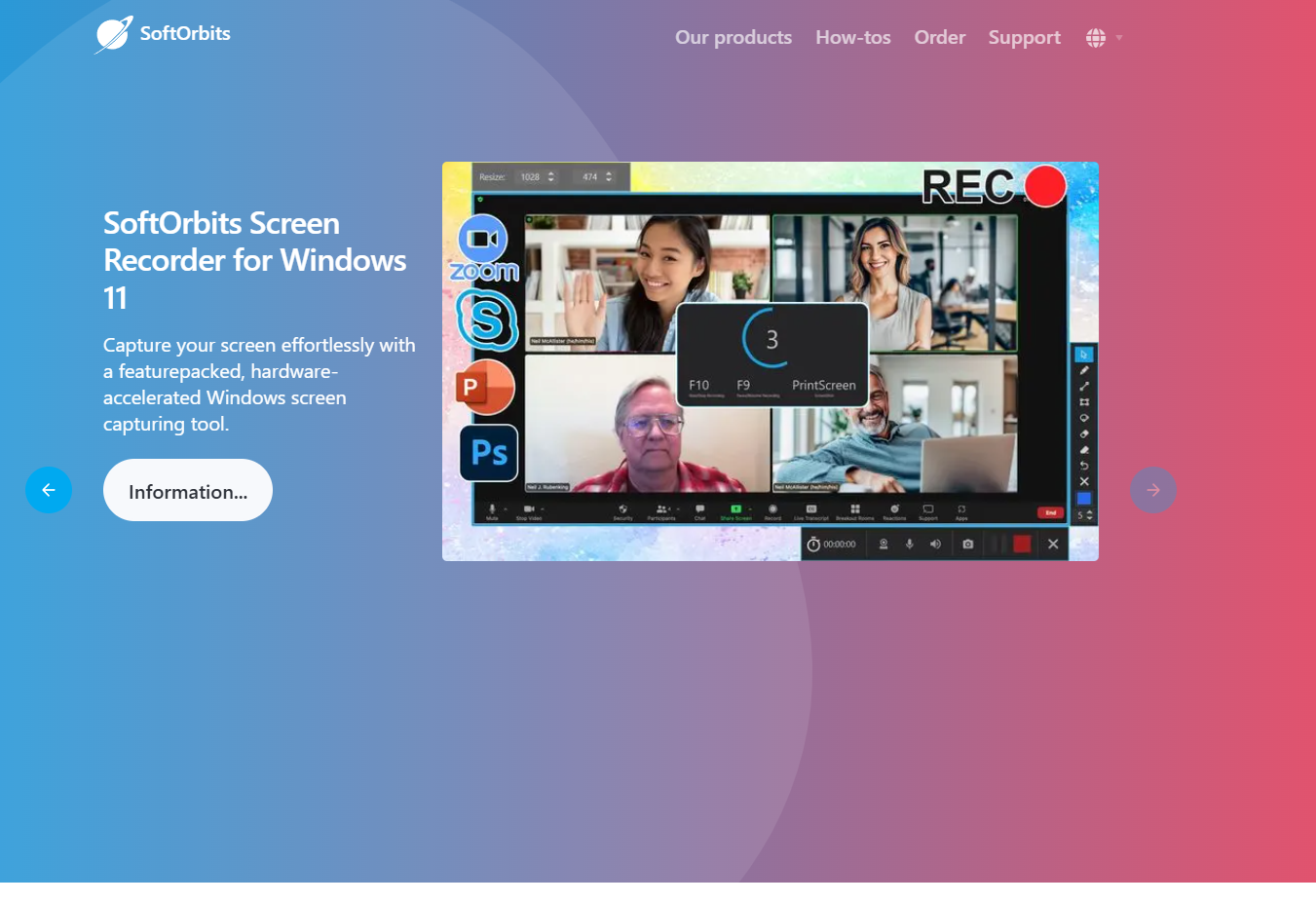Commercial Feature
SoftOrbits on why photo editing shouldn’t require a learning curve

It is a common experience among people who like photography yet aren’t working professionally in the field: the camera roll is full after a vacation, a holiday, or a simple trip, and you want to make some adjustments to it so that it looks a bit more like you envisioned it, or reflects the mood or an idea that you captured better.
This is the joy of creation, but it is often obstructed by bloated and way too complex software that requires vast technical knowledge to operate. Why does photo editing so often feel like studying for an exam? Can’t it be quick, intuitive, convenient, and stress-free? Do you always have to fight clunky menus, subscription traps, pro-only features, and unnecessary professional jargon to improve your photo?
SoftOrbits — a photo editing software development company founded in 2006 by Eugene Ustinenkov — offers a different approach to image data processing. Appreciated by over 300,000 users worldwide, the company has secured a unique niche in the market.
Here’s what makes it stand out.
Why has overly complex software become the norm?

When the first image editing tools appeared in the 90s, they weren’t meant to be used by everyone. These tools served the needs of various industries when it came to publishing and marketing. These were highly specialized tools that had no need to be user-friendly — the experts would learn them anyway since they were getting paid for it.
Despite the fact that we live in an entirely different world today, feature overload and professionals dominating the narrative are two relics of the past that still won’t go away. While software providers have made some steps to ensure their tools are a bit less confusing for beginners, they still ultimately propose to overcome incredibly steep learning curves through watching lengthy tutorials and reading manuals.
This is because they got used to developing and selling software like this for high prices, with little to no competition in the market. However, democratizing the niche isn’t impossible — it just takes courage and the right approach.
SoftOrbits’ counter-philosophy
The team behind SoftOrbits believes that intuitive, small-scale utilities designed for casual users and not professionals are incredibly important, and the fact that the company boasts over a million yearly downloads shows that this approach is correct.

“Not everyone needs a giant dashboard with hundreds of options for manual editing — most users would like a clean, intuitive menu that offers to do exactly what they need, preferably with some automated features. Background removal, red-eye fixing, and batch watermarking shouldn’t require tutorials — these effects can be achieved in seconds with no hassle,” says Eugene Ustinenkov, CEO of SoftOrbits and AlarmFront.
As Eugene notes, simplicity doesn’t mean that features provided by SoftOrbits are less technically impressive — the team just focuses on creating a user-first experience through automation, convenience, and even prompt-based AI options.

“Our tools enable parents to fix hundreds of school trip photos in one evening, business owners to quickly create product shots at little cost, and travelers to edit their photos on the go. No steep learning curve, no tutorials, just clean results — this is how it’s supposed to be in the age of Instagram”, says Eugene Ustinenkov, CEO of SoftOrbits, Candidate of Technical Sciences.
The team believes that quick success makes users more creative and enables them to express themselves with no need for overcoming incredible hurdles — users edit photos to share and not to earn a professional degree or recognition among expert-level photographers.
“We started our journey almost 20 years ago, and this idea of accessible and inclusive image editing is only getting more and more popular. We want to provide an alternative to unnecessary layers of complexity and break this pattern in the software market and show that small-scale utilities can be just as impressive and valuable as big-tech tools,” says Eugene Ustinenkov, CEO of SoftOrbits with over 10 years of software development experience.
The team plans on introducing even more automation in the future, focusing on AI capability to deal with repetitive tasks rather than to generate images from thin air. This way, the company preserves users’ individuality and shows respect to their creations and artistic vision. If you find yourself interested in the company’s products, make sure to check out the official website.
 News / Cambridge climbs to third in world Uni rankings11 October 2025
News / Cambridge climbs to third in world Uni rankings11 October 2025 Features / How to spend a Cambridge summer12 October 2025
Features / How to spend a Cambridge summer12 October 2025 News / Pro-Palestine protesters stage city centre rally12 October 2025
News / Pro-Palestine protesters stage city centre rally12 October 2025 Film & TV / The curious incident of The Doctor in the TARDIS11 October 2025
Film & TV / The curious incident of The Doctor in the TARDIS11 October 2025 News / Tompkins Table 2025: Trinity widens gap on Christ’s19 August 2025
News / Tompkins Table 2025: Trinity widens gap on Christ’s19 August 2025





